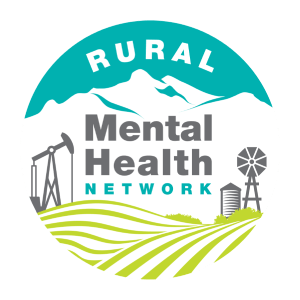Meet Lorrenda Southern - Part 1
Lorrenda Southern is a community Animator living in Drumheller, Alberta with her husband.
Lorrenda’s Connection to Mental Health
Growing up in a rural Albertan community, Lorrenda says there was little to no conversation around mental health. Despite her own struggles growing up, Lorrenda was able to receive the support she needed thanks to an organization for children called Alateen, “I realized the importance of getting help when you’re in isolation in a difficult situation.” She acknowledges that it is not common to speak about mental health concerns in rural communities, and this can lead to people often not receiving the supports that they might need.
Lorrenda’s first job was working in a women’s jail. This job became an eye-opening experience for her, and she gained a better understanding of mental health. Lorrenda’s work led her to learn about the supports that are available through social workers. From there, Lorrenda continued her journey with crisis work.
Restorative Justice Model & Trauma-Informed Practice
Over the course of her career, Lorrenda worked extensively in correctional facilities across Canada with women and youth. Lorrenda learned that many inmates were living in isolation and with significant unaddressed trauma. She has emphasized the importance of acknowledging the gaps in rural communities and addressing those gaps, “it’s amazing when you just see the need and you begin to help with it.” Although Lorrenda has seen and heard many traumatic experiences from those she worked with, she recognizes that with the right supports people can get better. This became Lorrenda’s motivation to continue with the great work she does within the community, “when you see people have gone through horrible things before getting help, you get passionate to keep wanting to help.”
Preventative Measures & Community Supports
As a school counsellor and family resource worker, Lorrenda’s focus tends to heavily be on preventative measures. Lorrenda believes in the importance of preventative measures to address mental health needs that can lead to youth getting involved in crime. Lorrenda reflected on her work with youth in gangs and recognized that often these youth are looking to belong. She says that if supports are available for youth, they will find belonging in a healthy way.
Beyond preventative measures, Lorrenda explained that Drumheller has different levels of community supports. These span from residential recovery programs at Grace House to visits from churches to help inmates transition back into the community.
Community in Challenging Times
Throughout the COVID-19 pandemic, Lorrenda was proud to witness Drumheller’s commitment to ensuring the residents were safe.
Lorrenda’s background in humanitarian work has provided her the opportunity to work with refugees and newcomers. Lorrenda’s awareness of how many women and people were living in isolation with unresolved trauma led her to develop programming for children to address their trauma and attend school.
